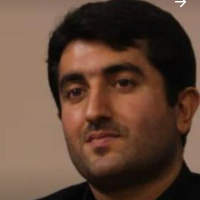The Developing of Soft Power in Russian Foreign Policy (2000-2013)
Abstract:
Since 2007, the issue of soft power entered into literature of Russian foreign policy. This concept that now is being specially pursued by the Kremlin, originated from various sources and sometimes conflicting. Contrary to what Joseph Nye - soft power's theorist - presented the main sources of such a power are governmental and not civil; This article fries to find out the essence soft power in Russia and how this country has been able to apply the soft power policy in its foreign policy. Main question this article is: what is the nature of Russia's soft power and how much is success rate of this country when using this tool? This paper reviews transformations of soft power In Russia's foreign policy in two sections: first, it investigates the soft power connection with major events of commensurate with the Russia's position in international politics. Then most important elements, including the Russian language, culture and values of this country, along with other international phenomena such as virtual network connections and benefit from the wide field of higher education, will be analyzed. The article claims that despite efforts to employ soft power in Russia in recent years, its success has been limited.
Keywords:
Language:
Persian
Published:
Journal of Central Asia and The Caucasus Studies, Volume:19 Issue: 84, 2014
Pages:
101 to 125
https://magiran.com/p1406978
مقالات دیگری از این نویسنده (گان)
-
The US-Sino competition in the field of artificial intelligence; From technonationalism to technogeopolitics
Saeed Pirmohammadi *, Mehdi Hedayati Shahidani, Seyed Amir Niakooee
Journal of Countries Studies, -
Netanyahu's psychological characteristics and its effect on Israel's approach to the Gaza war (2023)
Amirroham Shojaie *, Mehdi Hedayati Shahidani
Journal of Crisis Studies of the Islamic World,



